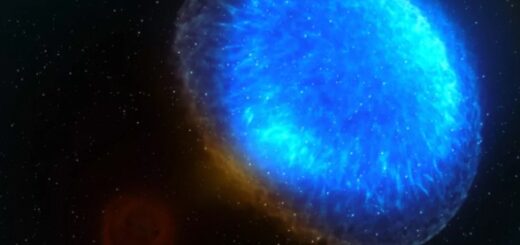How the Fermi Paradox Works

By the time you read this, the invasion will be over. You’re probably in an underground bunker somewhere, wondering what’s going on. It all happened so fast, few people understood the reality of the situation at the time. Aliens came, that much is clear, but from where we don’t know. How long they’ve been planning this is also unclear — years, decades, centuries? They keep demanding that Fred Astaire come out and dance for them, so it’s safe to say they’ve been monitoring our TV broadcasts for some time now.
Our diplomats are trying to convince them that we’ve got some living dancers who are just as good, maybe even better, but they won’t accept any substitutes, and when we explain that Astaire is dead, they just get mad. It seems mortality is a foreign concept for them. They seem genuinely baffled that we keep dying on them every time we catch one of their horrible alien diseases.
Another issue is that they live on sunlight and think eating food is vulgar. In fact, they find us disgusting overall — they’re not cool with so much ingestion and excretion and illness and death. They don’t seem to think much of our planet either — too damp, they complain, too many clouds. But this is all good news for us, because they’re making noises about leaving, probably in a month or two, once they’ve completed repairs on their flying saucers. With any luck, we’ll end up a minor footnote in their history of galactic exploration. So hang tight in that bunker; a good third of our population is still alive, and once the aliens leave, we can start rebuilding our cities.
OK, so obviously none of this has happened, but the question is, why not? That, in a nutshell, is the Fermi Paradox, which isn’t technically a paradox at all, but rather a looming question: How come no aliens ever show up around here?



 Creators of mankind
Creators of mankind Description of “Tall white aliens”
Description of “Tall white aliens” Where they came from?
Where they came from? About hostile civilizations
About hostile civilizations The war for the Earth
The war for the Earth “Tall white aliens” about eternal life
“Tall white aliens” about eternal life Video: “Nordic aliens”
Video: “Nordic aliens” Aliens
Aliens Alien encounters
Alien encounters The aliens base
The aliens base UFO
UFO Technology UFO
Technology UFO Underground civilization
Underground civilization Ancient alien artifacts
Ancient alien artifacts Military and UFO
Military and UFO Mysteries and hypotheses
Mysteries and hypotheses Scientific facts
Scientific facts


















